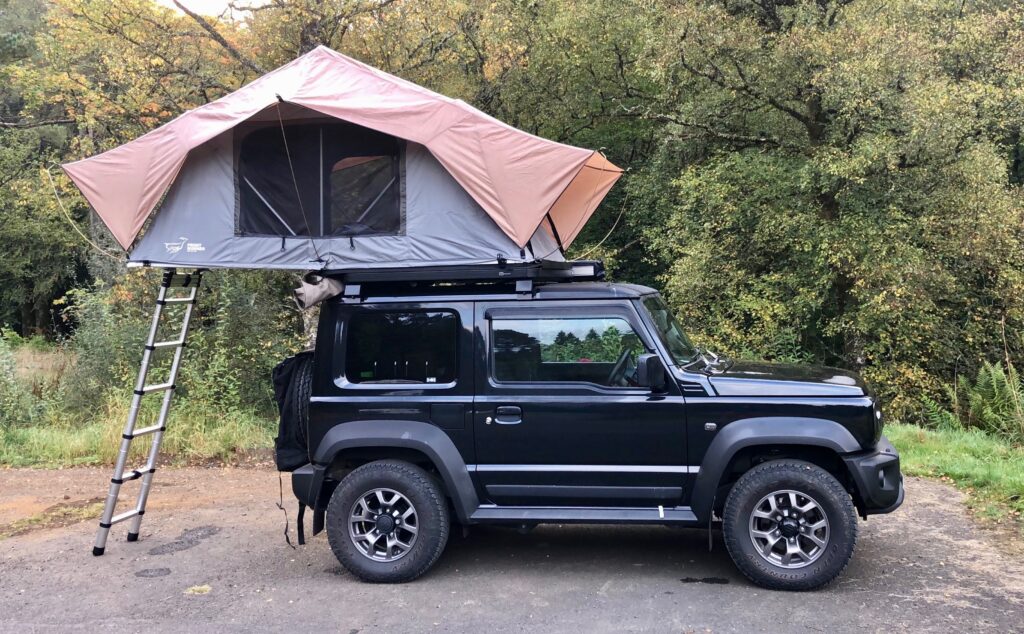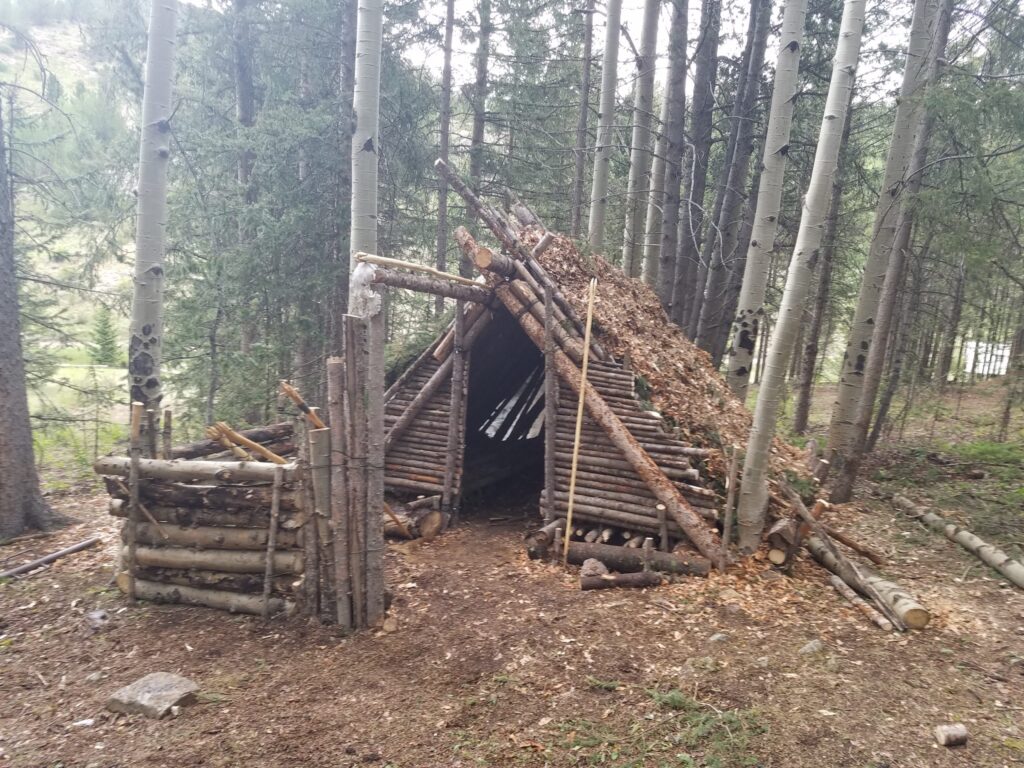Rooftop tents or ground tents are the most convenient shelter, whether on a campsite or just for providing a facility to live in for a while. Their convenience is due to their portability, easy transportation, ease of setting, and even dismantling or folding back for next usage. However, as tents grant the most convenient shelters, they have some cons, for example, penetrating noise or sound from inside or outside. Tents come in different styles or designs as well made-material depending on their purpose.
Some materials considered for designing tents include polycotton, polyester, and cotton. Such materials may not prevent some surrounding conditions, such as noise or sound, from penetrating in or out of the tent. In other words, most tents are not soundproof at all, and it may be inconvenient in several ways, such as disturbances to and privacy or confidentiality of the campers. However, there are easy ways to make the tent’s rooftop soundproof
Table of Contents
Here are my 9 best tips for minimizing noise in the tent
The problem with minimizing loud outside noise in the tent is that roof tents or ground tents are made of very thin materials. Of course, that always makes it very difficult to minimize loud outside noise!
A wall of a house, for example, can “swallow” more sound than a thin tent wall. Therefore, I would like to share my experiences with you on how to reduce loud noises as best as possible.
1. Put earplugs
Earplugs can be one of the best ways you can use to soundproof your rooftop tent. Earplugs are the simplest, most uncomplicated, and most inexpensive way to spend a quiet night in a tent. Especially if you don’t want to tinker with your tent or want to buy expensive insulation materials and want to modify your tent. It will bar the outside one from getting in.

The simplest and cheapest solution
With earplugs, you can immediately and easily ensure rest and a good night’s sleep. It’s handy if you always have a pair of earplugs with you… maybe you’ll need them one day.
2. Install an acoustic barrier
Installing an acoustic barrier is one of the great ideas you can soundproof your tent. Though quite expensive, the perfect method to curb noise from penetrating out or into the tent. This idea is not that far from the one used in recording studios; it involves adding a layer of MLV or any other heavy/thick material from outside the tent. This acoustic barrier will then block any waves of sound and keep the tent free from noise pollution.

Best acoustic barrier for tents
You can buy these acoustic panels and attach them to the inside of the rooftop tent or ground tent. These acoustic panels isolate you from annoying and loud noises.
For example, you can use glue or tape to attach the panels.
3. Hang Noise Reducing Curtains
Although you may not opt to install carpets or any other acoustic barrier easily due to budget constraints, especially if the need is abrupt, having noise-reducing curtains could be an immediate alternative. These kinds of curtains act like sound wave absorbers and dampen those waves away from your tent and prevent inside noises from moving outside. It is easy to install and use noise-reducing curtains. If your tent is so big, hang them around the tent’s wall or drape them on the walls of the tent if it is small. Besides, noise-reducing curtains do more than prevent noise from outside your tent; they prevent sunlight from entering your tent, therefore, giving you a good moment.
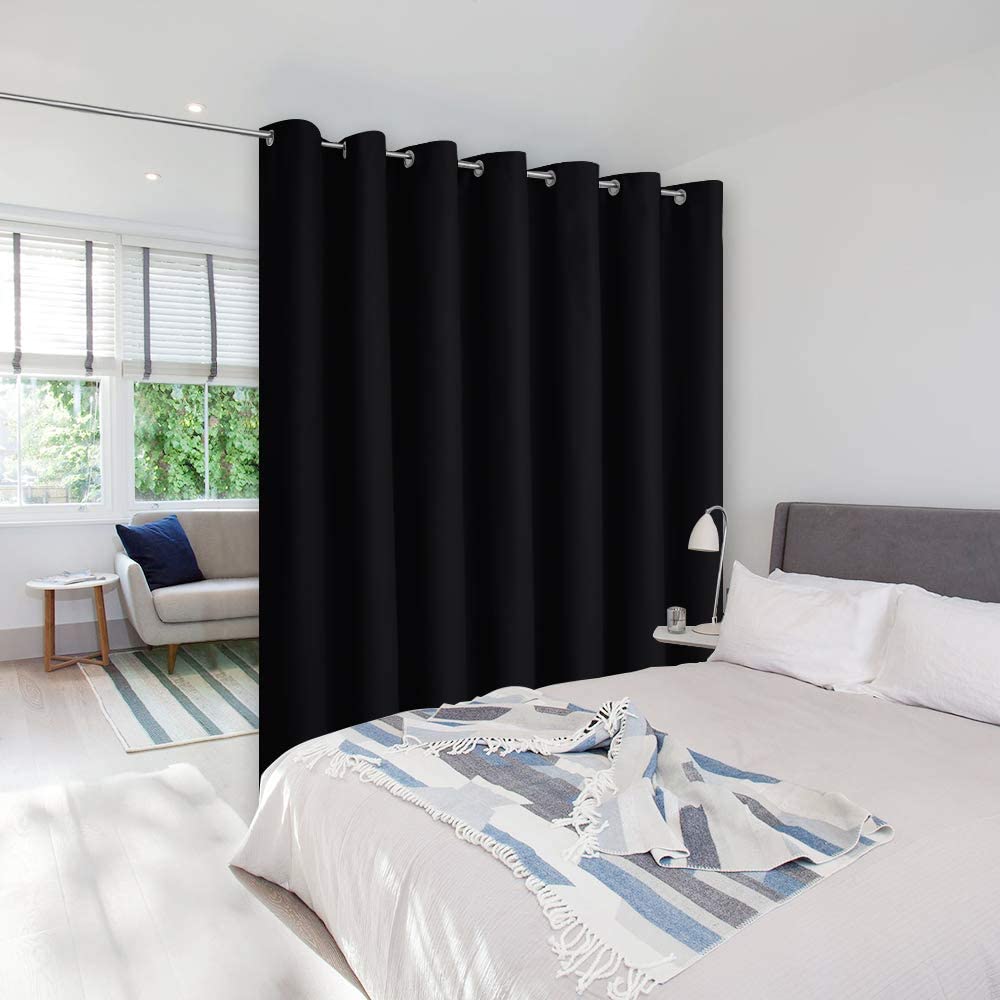
You can use these noise-reducing curtains to line the inside of your tent. You can attach these noise-reducing curtains with tape, for example. This reduces the sound that can enter the tent from outside.
>>Here you can find my product recommendation on Amazon.com<<
4. Use Destructive Noise Interference
You may have a sound system in your tent for music or other forms of entertainment. Of course, once you tune it, it may create disturbances to that outside; let’s say you’re at a campsite. Although it isn’t the best way to reduce noise, it does help. It works by keeping the noise of the sound waves “in the way” in order to disrupt the wave’s path by reducing noise pollution escaping the tent. One of the great ideas on noise disruption interference is putting the music system’s speaker system pointing at each other at the audience or dancefloor. The idea here is to interrupt frequencies and to control them from being too loud.
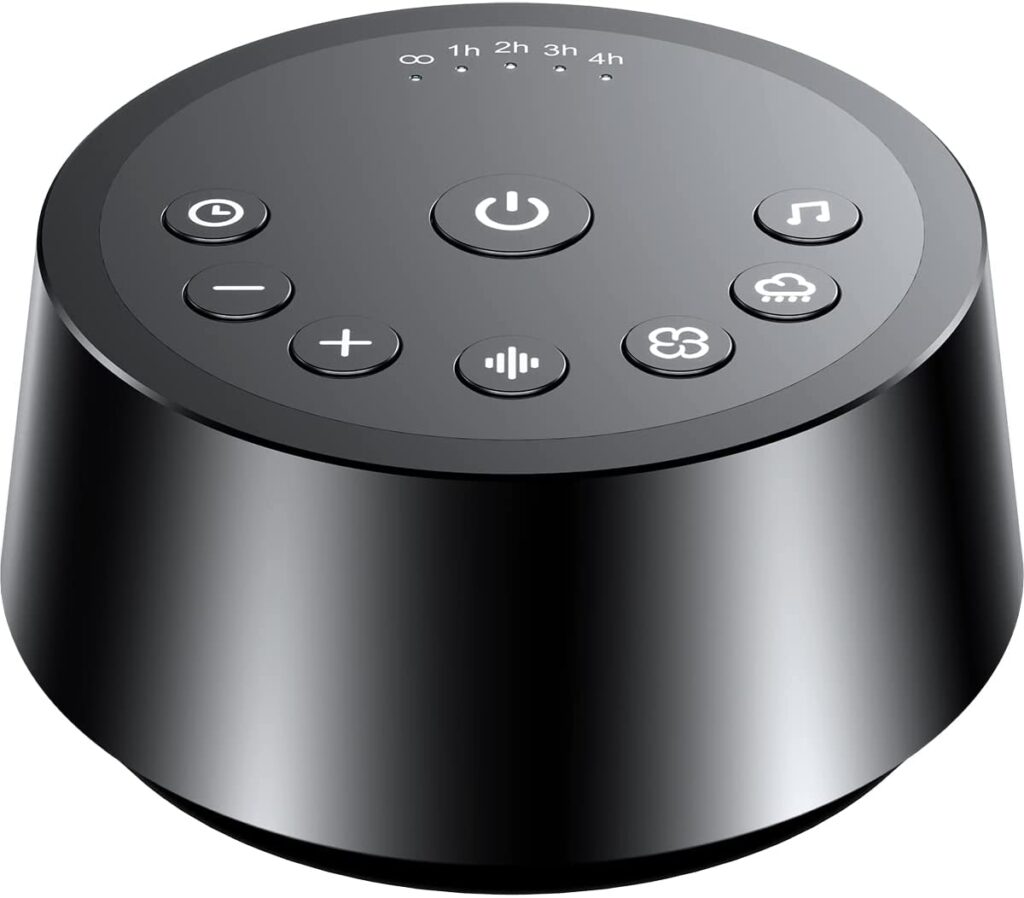
There are 4 sound categories, 5 white noises (Soft, Brown, Pink, Blue, White Noise), 5 fan sounds (Soft, 2*Household, Industrial, Lound), 5 Light music (3*Lullabies, Meditation), and 10 natural sounds (Fire, WaterDrop, Rain Thunder, Wave ) and so on. The sound rhythm helps you fall asleep, and the white noise machine can effectively cover up destructive or startling sounds to protect your sleep quality.
5. Setting up a separate soundproof wall
Whether you install an acoustic barrier, use noise cancellation ideas, or any other form of soundproofing your tent, there could still be some notices coming in or out of the tent. This calls for another idea, installing extra acoustic barriers around your tent walls. But opting for this idea is not easy as it’s quite expensive. These extra acoustic walls include installing insulating foam, especially if you use an open-sided tent, or adding a big sheet around your tent. This technology is helpful to soundproof your tent by blocking away noises from outside, especially if you are around residential areas, camping sites, or near individuals who mind minimal noisy surroundings.
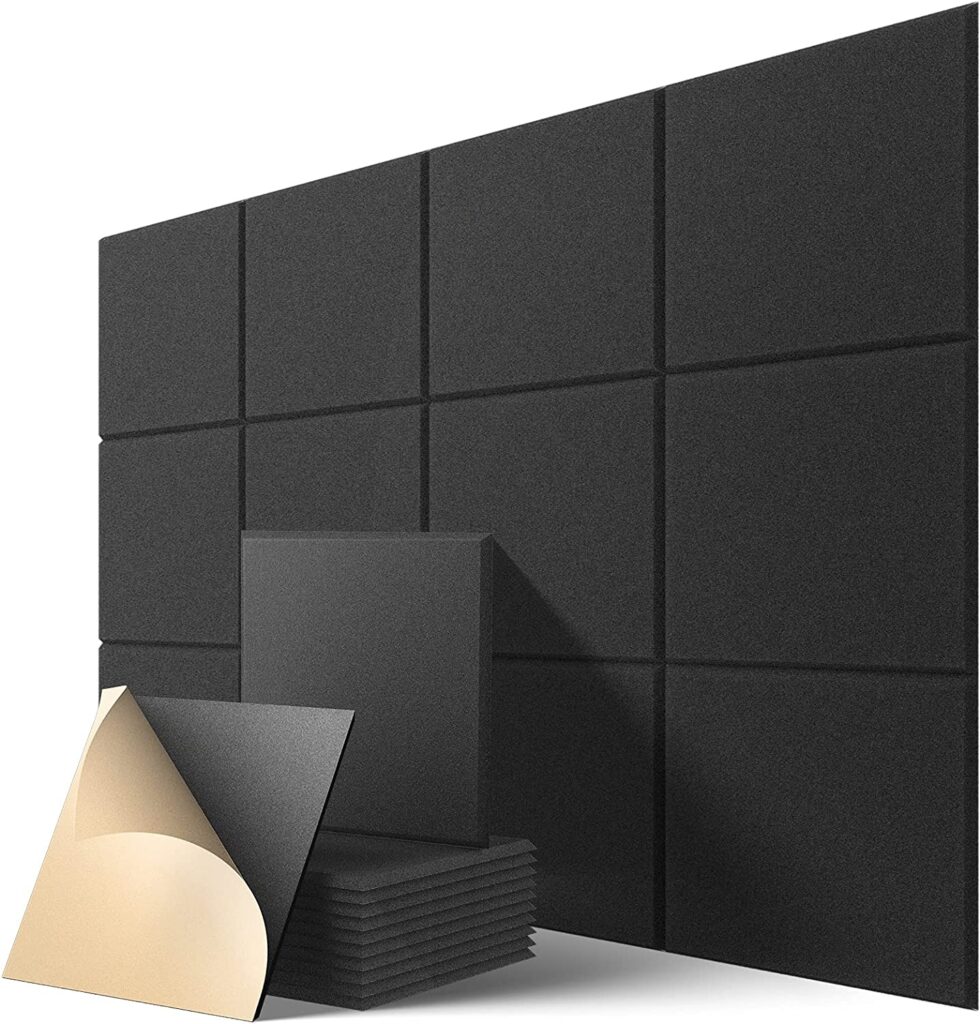
Self-Adhesive Design, with glue on the back, easy to install on tent walls. Suitable for various smooth surfaces. You don’t need to prepare extra adhesives or tools to fix it. It stops or reduces the sound/noise coming from outside the tent.
6. Put a wind chime outside
Camping tents, especially those in busy places like campsites, are encountered by outside noises. This means whenever you would like to take a nap, it won’t be smooth. But one of the good solutions to this is installing or hanging a wind chime at your tent’s doorway. This system works by sweeping up the surroundings with not only melodious but also calming sounds.

This is more to distract from disturbing outside noise. You can hang this wind chime on your car or on a nearby tree. The noise of the wind chime drowns out the disturbing outside noise.
7. Raise the sound system a bit higher off the tent’s floor
Floors tend to be a good transmitters of sound. This means if you have placed your sound systems, such as speakers, on the floor in your tent, the chances of noise penetrating out of the tent are higher. The best thing you can do to soundproof such a situation is to take your speakers off the floor.
8. Go for a hard shell rooftop tent
If you are looking for an ideal solution for soundproof rooftop tents, hardshell rooftop tents. These tents would suit you better as some of them feature a wildlife-friendly aerodynamic design which makes them fit for camping. You only need to turn this tent’s back to the wind and you are good to go. With this kind of setup, you are assured of an enjoyable outdoor experience without any worry about sounds and noises.
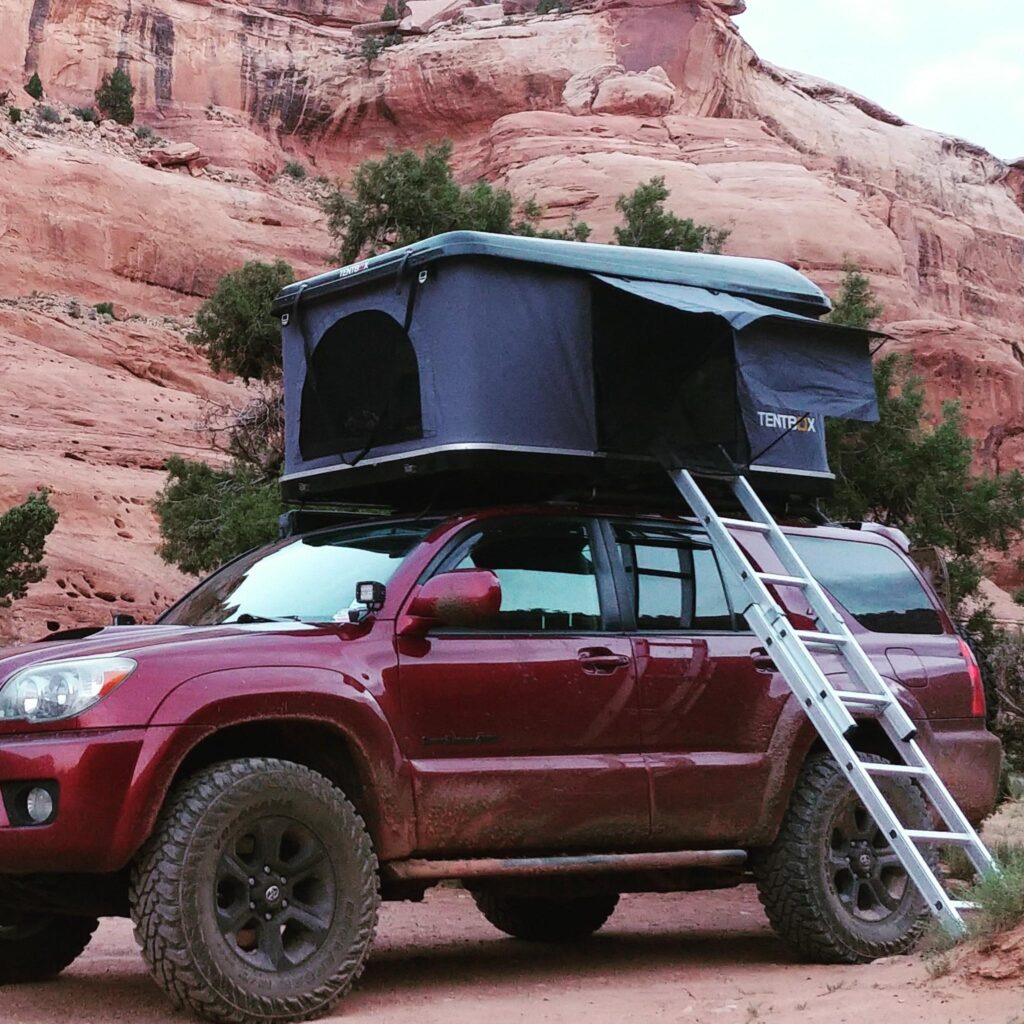
Hardshell rooftop tents are known to be better insulated against sound and noise. The material of hard shell roof tents is a bit thicker because the material can be folded differently.
>>Here is my recommendation for a good hard shell rooftop tent on Amazon.com<<
9. Park between trees or/and bushes
Trees and bushes are known to absorb sound and noise. Therefore, you should park your vehicle in such a way that the rooftop tent is protected by dense trees or thick bushes.
The sound-insulating effect of trees and shrubs has been scientifically proven and is easy to explain physically: the plants with their branches and leaves represent a physical obstacle for sound waves. Although the sound can penetrate them, it loses strength and is also partially reflected.
Conclusion
It is important to soundproof the rooftop of your tent, especially at a campsite. There are more benefits to doing this. In campsites, for example, there are many noises, especially at night, from individuals partying, chanting, or noisy children, which can interrupt your attention to settling in your tent calmly.
But you can soundproof the tent to minimize such noises, whether they are from outside or you don’t want the one from your tent to interrupt individuals outside. Therefore, by soundproofing your tent, you will reduce noise, enhance tent insulation and get good sleep.
The best tip for quiet nights in the tent: choose a quiet campground right from the start. For example, you can read Google reviews of a campground. If these reviews already mention that the campground is noisy, you should avoid it and look for another place.
Or you look for a place where there are no other people. In some national parks, you can set up your tent or roof tent wherever you want.


